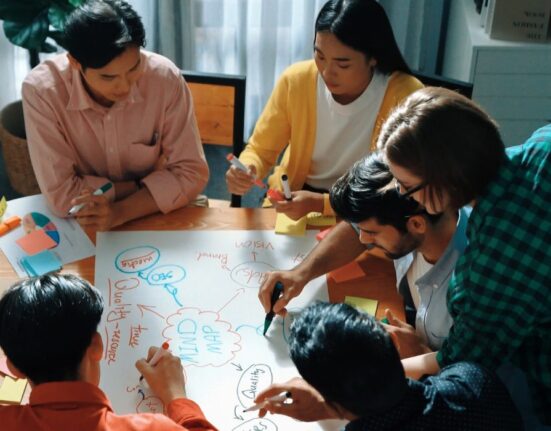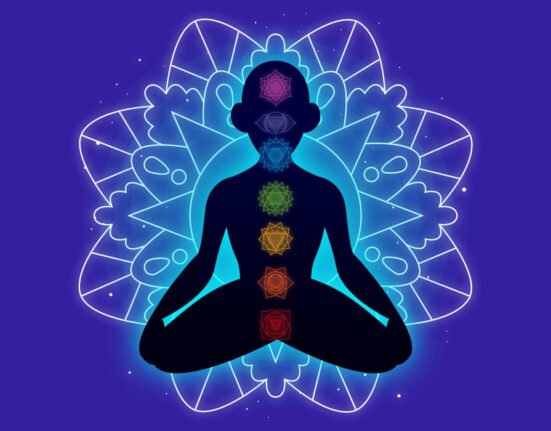Psychology became a part of my life much before I realised its presence, or took it up to study the subject formally. Growing up, I had been a silent but keen observer. I would pick up on subtle things that went unnoticed by others: shifts in someone’s tone, long and uneasy pauses in conversations, eye contact or the lack of it, heavy silences, and a lot more. This was not a habit; I did not even realise it while it was happening, but I was certainly invested in the behavioural traits displayed by people around me.
The sensitivity to my environment was not accidental. Growing up in a household where emotions did not play a big role and were rather often suppressed, I had to rely on my observations to navigate my relationship with each family member. I had to mature in a way that goes unnoticed. I knew when it was best to stay silent, when to mediate, and when to comfort. People did recognise that I was mature, but that somehow came more as a compliment than recognising the faulty and blurry expectation being placed upon me. Somehow, thanks to my innocent fascination with the adult world, I wore that label like a badge of honour.
When I finally encountered psychology as a subject, somewhere around 9th grade, it felt as though everything had fallen into place. I had meanings to everything I grew up seeing, hearing, and feeling. I no longer had to depend on my own self to interpret everything while barely knowing what those interpretations mean. Also, I got introduced to theories, frameworks and names to articulate what I have sensed for long. It was relieving to know that emotional patterns that included things such as avoidance, projection, and overcompensation were, after all, part of larger psychological processes and not personal failures.
Read More: Are we prepared enough to cope with failures?
How Family Systems Shape Who We Are
Everyone’s family is layered in nature. On the surface, everything might look functional, stable, and warm. But underneath remain unresolved traumas, communication gaps, and cycles of silent suffering. I had a hard time understanding why certain topics were always off-limits or how anger seemed to be an acceptable response regardless of its impacts. As I grew up and got introduced to psychology, I understood that my family was not problematic or unique; this was the case with a lot of Indian households.
Learning about generational trauma, attachment styles, and family systems theories helped me see that human beings were not broken; rather, they repeated patterns we did not understand. Parents are not our villains; they were people shaped by their own experiences and emotions. How they functioned depended on what they had learnt and known since their childhoods. Understanding this softened my resentment toward family structures and functioning. Realising this was not a quick fix, but it helped me put things in perspective, because the more I learn, the more understanding I become of people who brought me up. The resentment takes time to dissolve; it is not an overnight process.
Read More: Attachment Patterns Across Relational Contexts: A Psychological Overview
The Psychological Burden of the ‘Mature One’
From a young age, I was told that I am wise beyond my years. People came to me with their problems. I was the comforter and mediator in a lot of settings. Although I was dependable and steady on the outside, internally, I was often exhausted. The more I read, the more I understood where this need to be responsible for others’ emotions stemmed from.
I realised my desire to help and be there for others came at the cost of my well-being. I was trying to be kind, but I was also trying to secure a place in others’ lives by being needed. This realisation, albeit difficult, was freeing to some extent. I started learning when and how to draw a boundary, when to say no, and to allow people, no matter how close and loved, to take responsibility for their healing. I learned that supporting does not have to come at the cost of sacrificing myself.
Read More: 6 Signs That Prove You Are Not an Emotionally Mature Person
When Friendships Evolve: Why Emotional Honesty Matters
One of the most profound impacts psychology has had on my life has been in the area of friendships. Earlier, I used to struggle with letting people go, even when relationships felt one-sided or draining. I felt guilty walking away, worrying I was abandoning someone. I also kept trying to ‘win’ people back. Only now do I understand that healthy relationships are reciprocal, and the importance of emotional boundaries and mutual respect.
One of the best things I have learnt is to confront issues without hostility. I started having honest conversations about expectations, misunderstandings, and hurt. Very importantly, I learned to apologise sincerely and take accountability for my actions. These skills impacted my friendships in positive ways, transforming them for the better. There was a time when I thought emotional maturity was characterised by never getting upset. But it is so much about knowing how to navigate those heavy emotions; acknowledging, expressing and repairing as and when needed.
Read More: The Benefits of Maturity: Gaining Control of Ourselves
Who Am I Beyond the Roles I Play?
I had constructed my identity around how others saw me and what purpose I served in their lives. I was often the listener or fixer. With Psychology, however, I explored what it meant to move past the roles; to see myself for who I am beyond being just useful. I understood that my vulnerability does not mean I have to be abandoned and that all my emotions are just as valid as anyone else’s. Healing is never linear, and all of the people we surround ourselves with are also trying to come out of the box they had been put in. I have learned to be more forgiving. I have also learned not to take everything personally. Then, I have realised that it is not easy for everyone to recognise the things that I do.
Read More: Evolution of Psychology as a Profession- A Timeline
A Continuous Journey of Growth
My journey with this subject is far from over. I entered this field because I knew the importance and the lack of it in our daily lives. The road is full of moments of learning and unlearning. Some days, the struggles are beyond my current level of comprehension. I still struggle with the things I have successfully recognised. But now I am no longer blind to my cause, I am more aware than ever. I consider it a privilege to get to learn about the most sophisticated innate factor about human beings: our minds. Psychology is not just a subject I study; it has opened up a world to me. It has given me the lens to view people in ways I never thought were possible. It has turned my sensitivity to curiosity, and for that, I am endlessly grateful.













Leave feedback about this